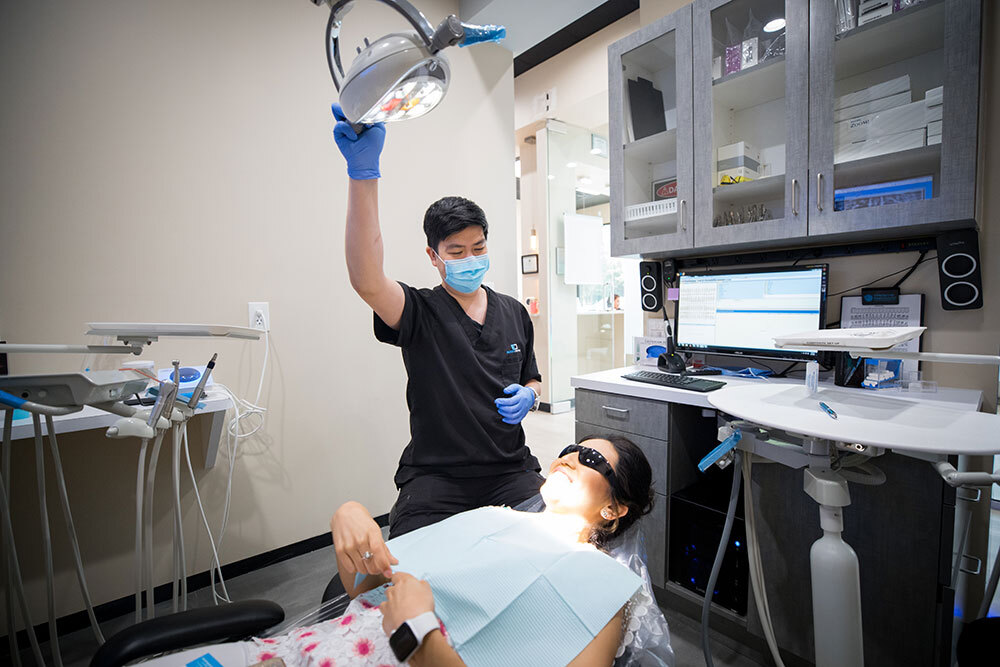What are dental implants, and how do they differ from other tooth replacement options?
In the realm of modern dentistry, the quest for effective and long-lasting tooth replacement solutions has led to significant advancements. Among the various options available, dental implants stand out as a revolutionary approach. This article delves into the intricacies of dental implants, shedding light on their distinctive features in comparison to other tooth replacement alternatives. Furthermore, we explore the complementary use of mouth guards in maintaining oral health and protecting dental investments.
Understanding Dental Implants
Dental implants are sophisticated devices designed to replace missing teeth by surgically anchoring artificial tooth roots into the jawbone. Composed of biocompatible materials such as titanium, these implants fuse with the natural bone, providing a stable foundation for prosthetic teeth. Unlike traditional dentures and bridges, dental implants offer a permanent and natural-looking solution that mimics the function of natural teeth.
How Dental Implants Differ from Traditional Options
Durability and Longevity:
Dental implants boast exceptional durability and longevity. As they integrate with the jawbone, they become a permanent part of the oral structure, often lasting a lifetime with proper care. In contrast, traditional options like dentures and bridges may require replacement or adjustments over time.

Preservation of Natural Teeth:
Unlike dental bridges, which often involve the alteration of adjacent natural teeth for support, implants preserve the integrity of surrounding teeth. This makes them a conservative option that minimizes impact on existing dental structures.
Bone Health:
Dental implants stimulate the jawbone, preventing bone loss that commonly occurs with tooth loss. This crucial benefit not only maintains facial structure but also contributes to overall oral health. Traditional options may fail to address this concern adequately.
Improved Functionality:
Implants provide superior chewing ability and comfort compared to removable dentures. Their stable integration with the jaw allows for the natural sensation of biting and chewing, enhancing overall functionality.
Aesthetics:
Dental implants offer a natural and aesthetically pleasing appearance. The customized crowns attached to the implants closely resemble natural teeth, ensuring a seamless blend with the patient's smile. Traditional options may not achieve the same level of aesthetic harmony.

The Role of Mouth Guards in Dental Care
While dental implants offer an excellent solution for tooth replacement, maintaining oral health is equally essential. Mouth guards, commonly associated with sports or teeth grinding issues, play a crucial role in safeguarding dental investments, including implants. Let's explore their significance:
Protection Against Bruxism:
Bruxism, or teeth grinding, can pose a threat to dental implants. Mouth guard act as a protective barrier, absorbing the impact of grinding forces and preventing damage to both natural teeth and implant-supported prosthetics.
Sports-related Trauma Prevention:
Active individuals, especially those engaged in contact sports, benefit from wearing mouth guards to prevent injuries to the teeth and jaws. In the case of individuals with dental implants, these protective devices become even more critical in preserving the integrity of the implant site.
Preservation of Investment:
Dental implants represent a significant financial and emotional investment. Mouth guards serve as insurance, reducing the risk of accidental damage or trauma that could compromise the success of the implant procedure.
Conclusion
In conclusion, dental implants have emerged as a groundbreaking solution for tooth replacement, offering unparalleled benefits in terms of durability, functionality, and aesthetics. Understanding the distinctions between dental implants and traditional options is crucial for individuals seeking effective and long-lasting solutions for missing teeth.
Moreover, the integration of mouth guards into oral care practices enhances the protection of dental implants and natural teeth alike. By addressing concerns such as bruxism and sports-related trauma, mouth guards contribute to the overall success and longevity of dental implant investments.
In the dynamic landscape of dental care, the combination of cutting-edge technology represented by dental implants and the protective measures provided by mouth guards signifies a holistic approach to oral health, ensuring smiles that are not only beautiful but also enduring.
Comments
Post a Comment